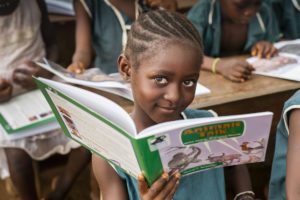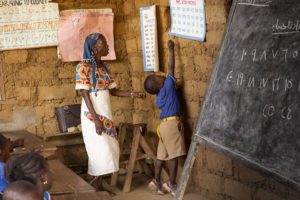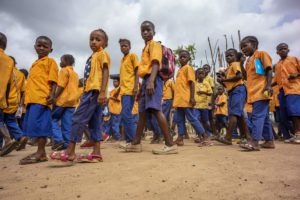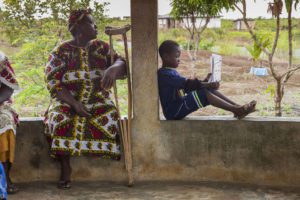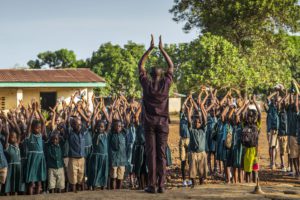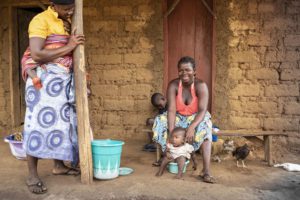CODE works to ensure that every child, no matter where they live, can learn from well-trained teachers who have the confidence and know-how – and the access to quality, relevant reading and learning materials they need – to deliver the learning outcomes all children deserve.
CODE works to promote every child’s right to read. We are part of a global movement catalyzed by the United Nations Sustainable Development Goals to “ensure inclusive and equitable quality education and promote lifelong learning opportunities for all.” CODE is committed to addressing an important part of the solution – and one of the most significant challenges standing in the way: teacher effectiveness – the single most important predictor of student learning.
We effect change by working in partnership with locally-based organizations (see Our Partners) who ensure the sustainability of programs and who provide a local voice and local expertise. We facilitate community participation, including stakeholders such as Ministries of Education, parent teacher associations and girls’ clubs, and academic partnerships. CODE collaborates with partners to develop locally appropriate solutions and then works with governments and institutional funders to scale-up change to a national level.
Our Programs
Together with our partners, we have helped more than 10 million children gain access to better quality inclusive education and benefit from reading and writing in order to improve their lives and the lives of their families.
CODE improves learning outcomes and educational opportunities for all girls and boys by working with like-minded organizations in three areas – Literacy Programs, Research Initiatives and Literary Awards.
OUR THEORY OF CHANGE: Development Through Education
We believe the greatest change happens when:
We address the severe shortage of qualified educators
We put the empowerment of women and girls at the heart of our approach
We ensure availability of high-quality, locally-relevant reading and learning materials
We drive sustained change through systems-level strengthening




